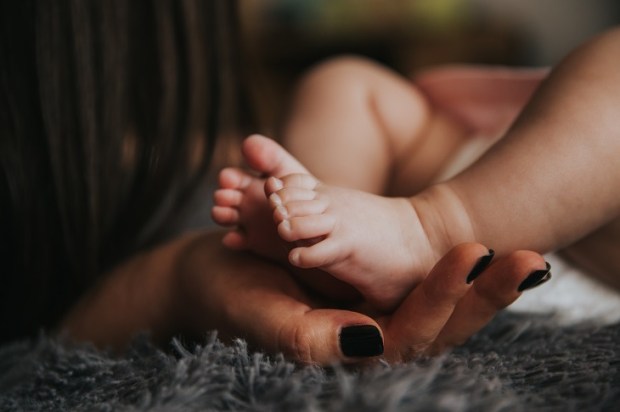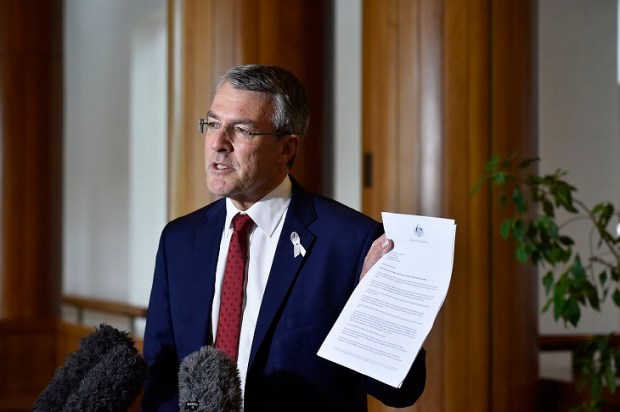November 19, International Men’s Day (IMD), highlights worldwide the positive value men bring to the world, their families, and communities. In particular, IMD is a global awareness day for many issues that men face, including parental alienation, abuse, homelessness, violence, and more importantly, suicide.
Men’s well-being has not been on the government’s radar resulting in little if any awareness of the issues men – fathers, husbands, or sons – face daily. The theme for 2023 is Zero Male Suicide given that men are 3-4 times more likely than females to die by suicide (ABS, 2007).
There are normally two camps when it comes to men’s mental health: embrace it or toughen up. Since Covid, the number of people struggling with mental health issues has spiked and continues to climb. In a world that grows increasingly more secular per day, the search for the antidote for this growing epidemic has come up fruitless.
Men’s mental health is in a crisis. From a biblical worldview, we can dissect the difference between spiritual warfare vs living in a fallen world. Men account for three-quarters of all suicides. The socioeconomic consequences are significantly impacting families, society, and indeed those left behind – mates, brothers, and particularly sons. The solutions are plentiful, it only needs political conviction.
In Canberra, outside the Australian Parliament House lawn, the not-for-profit community organisation Zero-suicide Community Awareness Program had the largest visual presentation highlighting the issue of men’s suicide by laying down one shoe for each male who died by suicide in 2022 – in fact, there were 2,455 male deaths at a rate of 18.8 per 100,000.
Comparatively, there were 794 female deaths at a rate of 5.9 per 100,000. In 2022, the number of deaths by suicide was higher for males than females in all reported age groups.
The spectacle of seeing 2,500 shoes displayed ACA lawn at Canberra Parliament House was a stark reminder of the crisis in men’s health. In 2022, the now-late Senator Jim Molan placed his old army boots on the lawn to highlight male suicide. The spectacle was not a protest but a memorial and awareness event.
The Australian Senate Community Affairs Reference Committee Inquiry into Suicide in Australia found that a paper published by the Australian Institute of Family Studies provided an overview of the evidence that shows men are less willing to seek help in times of crises and that even if men are willing to seek help, they might not know where to receive it. Even the local church has failed to cope with the issue of men’s suicide.
The impact of stigma related to mental health issues has been found in some studies to be particularly strong for men in rural areas, for whom the pressure to be stoic in the face of adversity is considerable. Unfortunately, men perceive taking practical steps, remaining optimistic, and getting on with the job as the most useful strategies to deal with life problems.
Depression, suicidality, and loneliness are major mental health issues for Australian men.
The Australian Institute of Family Studies (AIFS) findings in the publication Ten to Men: the Australian Longitudinal Study of Male Health found mental ill-health remains high among Australian men. Up to 25 per cent experienced a diagnosed mental health disorder in their lifetime, and 15 per cent experienced a disorder in any 12-month period. However, only a quarter of men said they would seek help from a mental health professional if they were experiencing personal or emotional problems.
As a Chaplain, I have seen psychiatric disorders in men ranging from mood disorders to substance abuse, with depression and anxiety being most common among Australian males. Even sadder is the fact that among the younger cohort (boys 10-14 years old), anxiety was the most reported mental health disorder – experienced by about 9 per cent of boys.
The AIFS report further found that for young men and adults, depression was most common, steadily increasing in prevalence as men got older, from 7 per cent among 15–17-year-olds to 13 per cent in adulthood (men aged less than 57 years).
But here is the worst finding ever. The report revealed that there was a significant association between loneliness and experiences of depression and suicidality. Men who reported lacking close friends or relatives were around twice as likely to have thought about suicide. This fact should alert the church, the workplace, the social club, and in particular the mates of those men who display loneliness and depression.
Adult men are least likely to seek help for an emotional problem from a phone helpline, with around 80 per cent indicating they would be very unlikely or unlikely to seek help from this source.
This International Men’s Day put an arm around a mate and simply say, ‘I am here for you mate if ever needed…’ and Christian or not, pray with and for him.
Christianity is strongly against suicide. It carries a proscription on self-destruction due to the core beliefs of how humanity was made and how that life is to be valued. The Scripture and biblical principles make it clear that suicide is not his will – scriptura sacra locuta, res decisa est.

























